Dan Ugaste, Illinois State Representative for 65th District | Official Website
Dan Ugaste, Illinois State Representative for 65th District | Official Website
The Illinois General Assembly is set to reconvene in Springfield for its annual fall Veto Session, scheduled for October 14-16 and October 28-30. The session will focus on reviewing legislation from the spring that received vetoes from the Governor, with lawmakers able to override a veto by a three-fifths majority or accept an amendatory veto.
In addition to its standard purpose, the Veto Session often addresses unresolved policy issues. This year, legislators may consider financial support for Chicagoland mass transit agencies facing a fiscal shortfall of about $200 million, significantly less than earlier projections. The shortfall has been linked to the use of federal COVID-19 relief funds by Regional Transportation Authority (RTA) agencies for general operations rather than one-time pandemic-related costs.
A proposal introduced by Senate Democrats during the previous session would bail out these agencies through various tax increases, including a $1.50 delivery tax on most home-delivered packages such as groceries. The measure could generate over $1 billion in new revenue.
“Home delivery, especially for essentials, has become a lifeline for many families,” said Deputy House Minority Leader Ryan Spain. “At a time when high prices on essentials are already hurting family budgets across the state, adding a new delivery tax on top of the sales taxes families are already paying would be devastating.”
Other potential tax proposals include a service tax covering more than eighty everyday services like parking, haircuts, dry cleaning, oil changes, and even costly home repairs.
“We fully expect the service tax conversation to come back during Veto Session this fall,” said Deputy House Minority Leader Norine Hammond. “This is a clear sign that Illinois families and small businesses are going to be asked to do more to fill the void for Democrats’ failed financial stewardship of our government. A service tax will drive up the cost of living even more for Illinois families.”
On energy policy, lawmakers may consider expanding green energy initiatives despite concerns over rising utility costs attributed to current policies. Proposals include surcharges on electric bills for battery storage projects and adjustments to nuclear power regulations.
“Speaker Welch and Governor Pritzker like to pretend Illinois is leading the way on energy. But the truth is we are falling further behind while utility bills skyrocket, manufacturing jobs are at risk, and investment dollars leave our state,” said House Minority Leader Tony McCombie. “Fortunately, Illinois is blessed with one of the strongest nuclear fleets in the nation. Instead of chasing unrealistic green energy deadlines and expensive subsidies, we should focus on reliability and affordability. Families don’t care about ‘green’ slogans; they care about whether they can afford their electric bill and whether the lights stay on when it’s 100 degrees or -10.”
There are also concerns related to Illinois’s Biometric Information Privacy Act (BIPA), which some believe could threaten jobs and investment in technology and construction sectors due to strict regulations.
Governor J.B. Pritzker recently directed state agencies via executive order to identify spending cuts amid budgetary pressures after signing Illinois’s largest-ever budget at $55.2 billion in July—an increase of approximately 40% since he took office.
House Republicans have criticized ongoing spending increases as unsustainable: “when state spending has increased nearly 40% in just six years, the financial problems facing the state are not the fault of Washington.”
Possible topics during this session also include mandatory voting proposals and changes to local election procedures statewide.
However, Republican leaders note that there has been little discussion among majority party members regarding significant tax relief measures or reforms related to public safety laws or ethics rules.
Economic analysts warn that Illinois faces an increased risk of recession according to Moody’s data; it now ranks among states most likely headed toward economic downturn due partly to its high overall tax burden.
Governor Pritzker has responded by criticizing federal policies but House Republicans urge focusing efforts within Illinois itself instead of blaming external factors.
Elsewhere in state news:
Construction began this week on the Illinois Quantum and Microelectronics Park along Chicago’s South Shore near Lake Michigan—a project backed by IBM and DARPA intended as home for what developers say will be “the world’s first utility-scale quantum computer.” Legislation passed in 2024 paved way for this initiative aimed at advancing microelectronic research using quantum physics principles.
A recent federal court opinion emphasized urgency around reforming property tax sale procedures following last year’s Supreme Court decision (Tyler v. Hennepin County). Without legislative action setting proper protocols for returning surplus proceeds from delinquent property sales back to former owners—as required by law—Illinois counties face growing legal liabilities.
Deer hunting season began October 1 with archery hunting continuing into January; firearm seasons start November 21.
Morton hosted its annual Pumpkin Festival marking both its status as “Pumpkin Capital of the World” (a title formalized by proclamation in 1978) and celebrating Nestle Libby’s pumpkin plant centennial anniversary.
Dan Ugaste was elected as Republican representative for Illinois's 65th District in 2019 after Steven Andersson.
For further details visit The Caucus Blog.

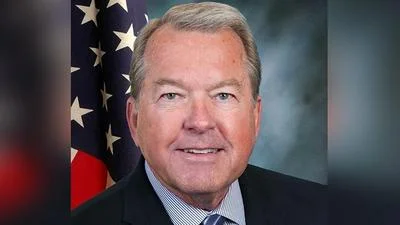
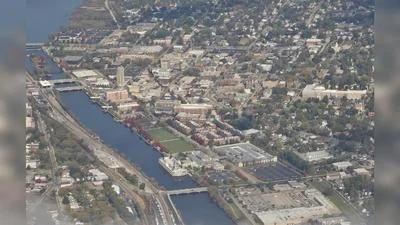
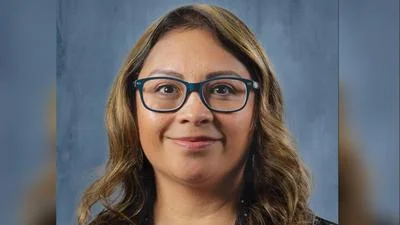
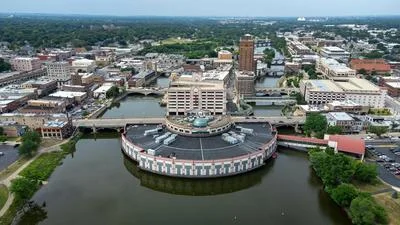
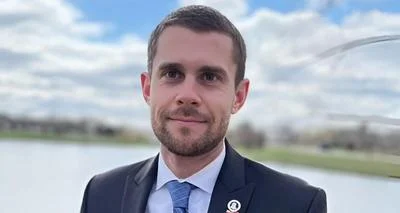
 Alerts Sign-up
Alerts Sign-up